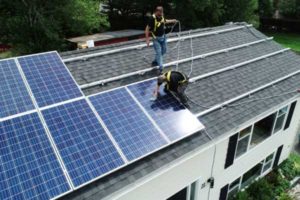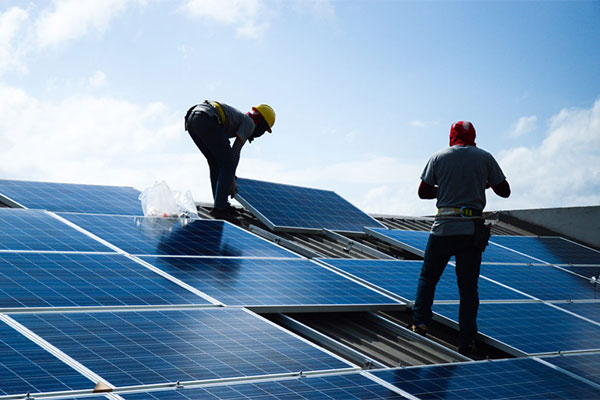The Nova Scotia Electricity Act was amended to remove net metering for some qualifying users and caps on large energy producers.
With the 100-kilowatt cap removed, businesses will now be able to generate enough renewable energy to meet their needs. However, homeowners were not as pleased by the announcement. Could the changes detour residents from investing in solar solutions for their homes?
The amendments to the Electricity Act appeal to industries and those interested in developing large-scale solar projects, however, homeowners may not be as pleased with the changes. Residents will no longer receive rebate benefits after reaching net-zero, but those with existing projects will be grandfathered into the new system and will continue receiving benefits after hitting net zero.

Nova Scotia is one of eastern Canada’s Maritime provinces on the Atlantic. Consisting of a peninsula and offshore islands, it’s home to puffins and seals, and popular for water sports like kayaking.
The change is meant to encourage homeowners to develop efficient solar projects, properly designed systems to meet their needs without exceeding them. This means homeowners will no longer be able to make a profit (from their solar installations) by selling power back to grid after their electricity bill reaches net-zero.
Something to point out here: if a homeowner’s project is connected to the distribution grid, excess power will continue to be fed back to grid but due to the amendments, homeowners will no longer be compensated with rebate cheques for the renewable energy they supply to their communities. Previously, residents would be paid for electricity at the retail class rate and some homeowners were able to receive sizeable rebate cheques during peak production months.
Premier Houston advocated for the changes, claiming they would help support the continued greening of the grid. However, some homeowners are calling for rebate payments to remain for new installations, fearing these changes could detour residents from investing in smart home solar solutions and others smaller solar PV projects.
Nova Scotia Power had proposed new net-metering customers pay a system access charge of $8 per kilowatt every month, beginning in February 2023. However, the Province will ensure the charge does not take effect through the changes to the Electricity Act. Furthermore, residents with solar systems 27 kilowatts or smaller, will no longer have to complete the net metering application, which could take months to process.

Approved solar installers work on the roof of a house (Photo courtesy of Communications Nova Scotia)
In these ways, the province is helping ensure the continued buy-in from Nova Scotia residents to renewable energy and small-scale solar projects.
More than 4,000 solar homes across Nova Scotia and the Province has committed to 80% of their electricity coming from renewable energy by 2030. Nova Scotia’s economy was boosted by $30 million in private-sector investment in the solar industry last year. With the changes to the Electricity Act, it is conceivable that Nova Scotia will be an even more appealing option for large-scale solar investments moving forward.
What is less clear is whether homeowners will be as inclined to invest in solar solutions, knowing that they will no longer be able to profit from extra power being produced.
Since the size of solar projects was already something that needed approval from Nova Scotia Power, it’s possible that the changes to the Electricity Act will not be a major deterrent to homeowners; even prior to the changes, projects that significantly surpassed a homeowner’s needs, designed to generate a profit through the rebate system, would likely not have been approved by NSP.



















Comments